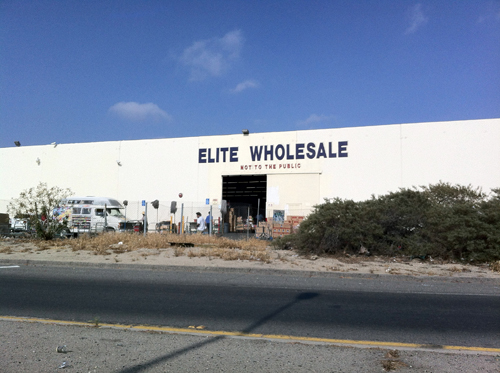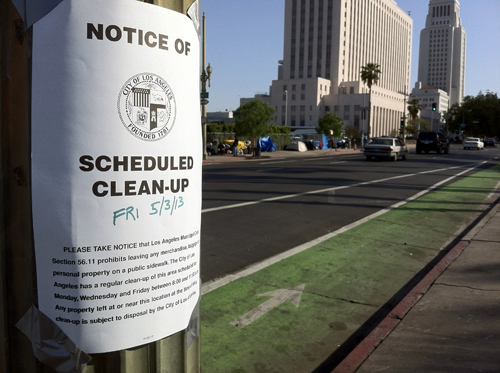Deterritorializations: Repetition, Stutter, Report P.S.: Catabolism, Or Translation as a Destructive Metabolism, Or Your Exchange Value
BY Jen Hofer

We can take refuge/in something other than the mind for image does/not always follow content.
—Tsering Wangmo Dhompa, from “Catabolism”
Catabolism, according to various online dictionaries, is a metabolic process in which complex molecules are broken down into simpler ones, resulting in a release of energy. It is also called “destructive metabolism.” Energy is released in order to be made available for alternate endeavors, molecules reconstituted elsewhere, otherwise. Translation is catabolism: the parts of a paragraph, a poem, a phrase, a word are broken down into smaller units, releasing energy, the molecules reconstituted elsewise, otherwhere, the energy available for alternate endeavors.
Something becomes something else.
Which is what I love as a reader—and what causes me consternation and joy as a translator—in the work of Uruguayan poet Virginia Lucas, whose work I am currently translating for near-future publication with Litmus Press.
Something becomes something else that is the thing and is no longer the thing: destructive metabolism.
Domiño
Montevideo-Santiago de Chile, Abril
Un travesti nomino como gárgola antigua, en pose pasa,
pasa de mí, NO.MI.No
Un hombre, llamo, nomino como quieta flor, comparo
y pasa ella.
La anciana me parte la mirada la curva de su espalda
las bolsas que lleva arrastra el cuerpo, carga, como el hombre
como travesti (que fue niña)
y recuerda un beso recuerda, la cara de la abuela
sonrisa abierta en pararayo y piensa:
antes del nombre la nostalgia:
ella pasa, el travesti, el hombre de la niña que fue
y todavía será esto,
(si de la tradición se nutrió y desistió) del cambio en él, en ella
siguió la línea y fue llamado hijo (hoy lo nombran padre)
aunque sea el travesti
LA TRAVESTI NUNCA ESTUVO
me do mi nó el artículo
juego antiguo exorcizando el miedo a nombrarla
(relámpago fugaz, la sonrisa)
Domiñon
Montevideo-Santiago de Chile, April
I nominate a tranny as an ancient gargoyle, passes by posing,
passes me by, NO.MY.Nay(te)
A man, I name, I nominate like a tranquil flower, I compare
and she passes.
The old woman splits my gaze in two with the curve of her back
the bags she carries drag her body, cargo, like the man
like a tranny (who was a girl)
and remember a kiss remembers, the face of a grandmother
lightning-rod open smile and thinks:
before the name nostalgia:
she passes, the tranny, the man of the girl who was
and still will be this,
(if on tradition was nourished and desisted) on the change in him, in her
towed the line and was called son (now they name him father)
despite being tranny.
THE TRANNY NEVER EXISTED
do me nated me, the article
ancient game exorcizing fear as she is named
(fleeting lightning, the smile)
Dominion, nomination, naming, passing. A body is not always everything we are taught to expect, we learn in Tsering Wangmo Dhompa’s “Catabolism.” Multiple and seemingly contradictory terms might be used to denominate—to modify—a single body. Expectation is present; expectation is defied. The body that defies expectation or the term that defies translation: these are instructive and propulsive gifts. I’m reminded here of Troubling The Line: Trans and Genderqueer Poetry and Poetics, co-edited by TC Tolbert and Tim Trace Peterson, recently published by Nightboat Books. I wrote a brief essay after my first very excited reading of the anthology; part of the essay goes like this:
Who better as guides than these writers for traversing, extending, exploding, remapping, blurring, erasing or disregarding altogether the many lines that demarcate, divide, denominate and ultimately dull the immeasurable potential of our existence? When we need to transform formula into form, to reconfigure confinement as constraint (generative boundary-edges whose friction instigates flares of dazzle and wonder), to trouble the most troublesome lines—and in this all too difficult and all too brutal world, we need nothing more urgently—we require, more than anything, a new syntax, a different relationship to language so as to articulate and inhabit a different world. Adventurous poetry and adventurous genderqueerness have this in common: both invite us into a more purposeful, more attentive, and more radical relationship to language. We cannot take for granted that this word can be used for that body; we cannot take as a given that we share the same understanding of even (or perhaps especially) the most familiar words.
If poetry is about queering language—and that is precisely what poetry is about, where “queering” has nothing to do with our sexual predilections and everything to do with a joyous refusal to conform to convention’s expectations—then who better to welcome as our models than writers whose articulated syntax and embodied movements through the world are the very territories of their revolution?
I wouldn’t exactly claim translation as a genderqueer practice (though I wouldn’t exactly not claim that either), but I do think that some of the useful unsettlings of expectation that queer and genderqueer bodies and modes of being represent—and particularly their ramifications for language—are congruent with the ways that catabolic translation—especially of radically queered and de-conventionalized language—can usefully unsettle.
I am especially unsettled at the moment by the title of Virginia Lucas’s book—and I’m taking suggestions if anyone’s read this far and cares to make any (my work email is readily available via google search). The book in Spanish is titled Amé.RICA. Tu valor de cambio. Based on my own research and on conversation with Virginia and with other native readers/speakers of Spanish, here’s my current understanding of the title:
+ Evident to eye and ear: America (or some purposefully bastardized version of that term).
+ Amé: first-person past tense (preterite) of the verb amar, to love.
+ RICA: rich (as in moneyed), and also delicious (as in good food or good love). “Rica” (as opposed to “rico”) is an adjective with a feminine referent or is a noun meaning “rich woman.”
+ The period between “Amé” and “RICA” denotes a separation between the two ideas, or a resignification after “amé” while still allowing the word “America” to resonate.
+ Tu valor de cambio most directly translates as “your exchange value”; one of the primary impulses of the book is a radically estranged anti-capitalist poetics.
Virginia and I have been in a years-long (non-full-time) conversation about this title. Part of her thinking about the title is this (in my translation): “RICA, in addition to wealth, also refers to a young woman, that is, I loved you young woman, I loved your value, your brashness, what was rich, delicious, expensive for me… Gender does matter, it’s feminine—rica, not rico—and here to break the word with the period divides the unity of the meaning into two parts, in order to fuse them. America is a broken geopolitical unity in the vision of the texts in this book, in the way the various parts are constructed, it’s the imaginary unity on which the work centers, the real notion that is attacked by the text.

So far my working title is Ah!Me.RICH.Ah! Your Exchange Value but I’m not yet convinced. I’ve performed the initial step of the catabolic translation—the pulling apart of the various units of speech and signification in this word/phrase. The energy has been released, but is spilling all over the page, not yet gathered in a container that will queer the word “America” the way Virginia queers the word “América.” I remain attached (perhaps overly) to the ways Virginia’s title is able to expand exponentially in Spanish, and my desire is to instigate such exponential expansion in English. But perhaps English expands differently than Spanish—certainly it does—and perhaps I need to trade my desire to repeat (to reproduce) for a desire to report (to reverberate, to inform).
A body is not always everything we are taught
to expect. Functions of the self accommodated
into parts — eyes, ankle, lobe, pelvis — to orient us.
The whole is no secret. Toenails and hair as nodules
of enquiry so body is a text to acknowledge the self
that is not there.
Tsering Wangmo Dhompa, from “Catabolism”
A poet, translator, book-maker, activist interpreter, educator, and urban cyclist, Jen Hofer was born…
Read Full Biography

